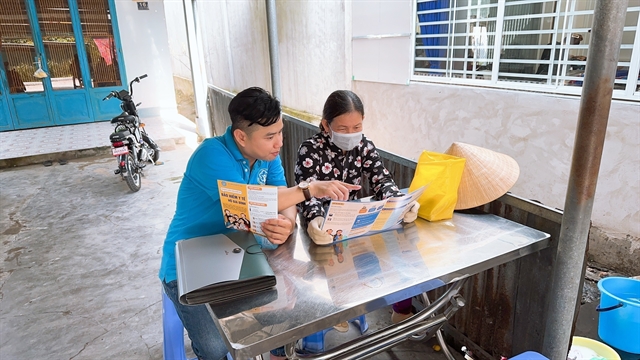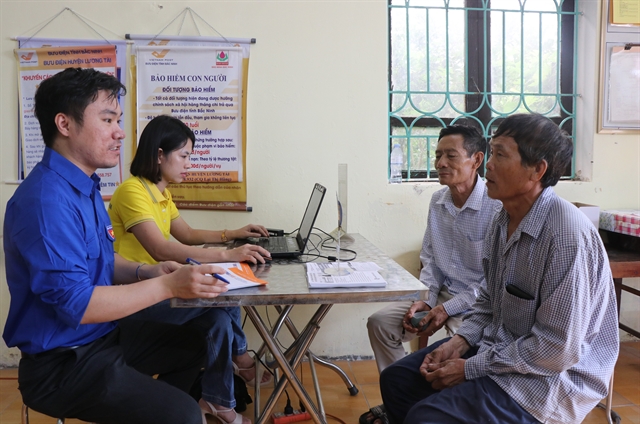 Society
Society

 |
| Social insurance officers in Bắc Ninh Province help pensioners setting up their online accounts for cashless pension payment. — VNA/VNS Photo |
HÀ NỘI — Fifteen years following the Party Central Committee Secretariat’s Directive No. 38-CT/TW on promoting health insurance in the new situation, the implementation of the health insurance policy for the 2009-24 period has gained many achievements, with the goal of universal health insurance likely to be reached.
As of late 2023, over 93.6 million people, or 93.35 per cent of the country's population, are covered by health insurance, exceeding the goal set in the Government’s Resolution No. 01/NQ-CP as well as the National Assembly’s Resolution No. 68/2022/QH15 on socioeconomic development plan for 2023, and an impressive surge from the 39.7 million, or 46.1 per cent of the population, recorded in 2008 before the directive was issued.
Maintaining the pace of health insurance growth amid people's difficult living conditions has once again affirmed the steadfastness and determination of the political system in general and the social insurance sector in particular in effectively implementing the universal health insurance roadmap.
With the consistent viewpoint of taking people and businesses as the subject and centre of service, the Việt Nam Social Security (VSS) always strives to ensure full, timely and legitimate benefits for participants. The number of health insurance card holders going for medical examination and treatment increases rapidly year after year.
From 2009 to 2023, the average number of medical examinations and treatments covered by health insurance per year was over 141 million, an increase of 59.5 per cent from 2009, with an average cost of VNĐ66. 2 trillion (US$2.6 billion) a year, up 330 per cent against that in 2009.
Notably, during the period when the whole country was affected by the COVID-19 pandemic, the pivotal role of the health insurance policy in the social security system was further promoted, contributing to health care and stabilisation of people's lives, and enhancing faith in the humane social security policy of the Party and State.
In addition, the VSS has focused on solutions to create utilities and benefits for participants, beneficiaries and State management agencies in preventing the profiteering of health insurance funds.
The sector has also sped up administrative procedure reform, with 115 procedures in 2015 cut down to 25, and expanded the application of information technology and digital transformation in professional work. — VNS